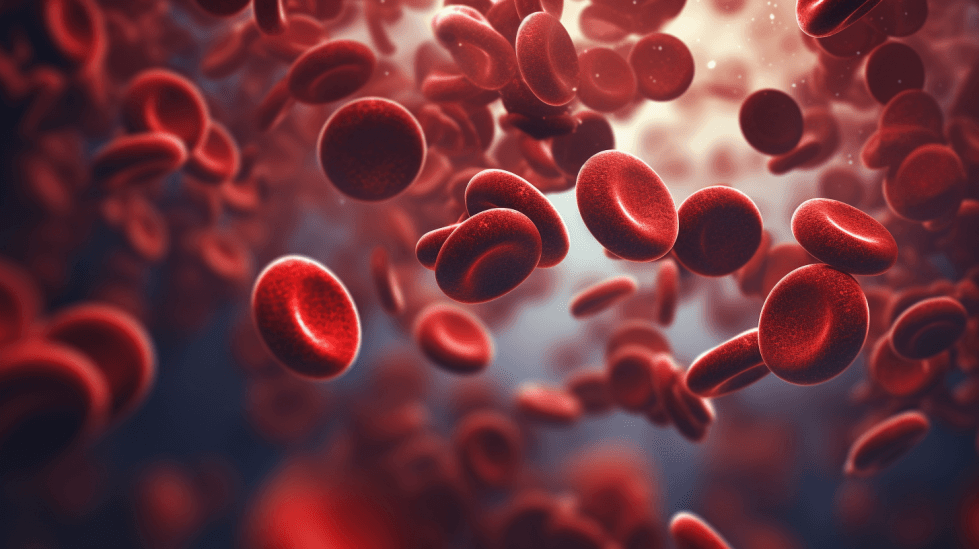Does Nicotine Gum Cause Hair Loss
Many people turn to nicotine gum as a way to quit smoking, but there is growing concern about the potential connection between nicotine gum and hair loss. With hair loss being a significant issue for many individuals, it is essential to understand the factors contributing to this problem, including lifestyle choices and the use of certain products.
Nicotine is the primary psychoactive agent in tobacco and is classified as a stimulant drug. Research has suggested that nicotine consumption can lead to hair loss by various means. Some of these include disruption in blood circulation, excessive oil secretion, and imbalanced pH levels on the scalp. Therefore, it’s crucial to examine whether nicotine gum, often perceived as a safer alternative to smoking, may still contribute to hair loss or promote premature balding.
Nicotine Gum Basics
Nicotine gum is a type of smoking cessation aid designed to help individuals quit smoking by reducing cravings for nicotine. Nicotine is the addictive substance found in tobacco products, and this gum aims to help users gradually reduce and ultimately eliminate their dependency on it [source].
Users typically chew the gum in their mouth, being careful not to swallow it. The gum releases small amounts of nicotine, which gets absorbed through the lining of the mouth and alleviates withdrawal symptoms associated with quitting smoking. This method provides the user with a controlled dose of nicotine, allowing them to gradually reduce the amount consumed until they no longer need it to curb cravings [source].
While nicotine gum can be an effective tool for quitting smoking, there are concerns about potential side effects, including hair loss. Nicotine is a stimulant that can constrict blood vessels, leading to reduced blood flow to the hair follicles. This disruption in blood supply may cause damage to the hair follicles, which in turn can lead to hair loss [source].
The use of nicotine gum for extended periods might also contribute to hair loss. Long-term exposure to nicotine can cause an acidic scalp and disrupt the pH balance of the hair, further damaging hair follicles and potentially leading to hair loss [source].
It is essential for individuals considering nicotine gum as a smoking cessation aid to weigh the potential benefits against the risks, including the potential for hair loss. Consulting a healthcare professional for personalized advice and exploring alternative methods of quitting smoking may be valuable in making an informed decision.

Hair Loss Causes
There are several factors that contribute to hair loss, one of which is the consumption of nicotine gum. Nicotine, which is present in various forms such as e-cigarettes, chewing gum, and chewing tobacco, has been linked to hair loss and damage due to its effects on the scalp and hair follicles(Hair Loss and Nicotine Consumption: Myths and Facts).
Nicotine can produce excessive oil secretion on the scalp, leading to hair damage and subsequent hair loss. Additionally, it can disrupt the pH balance of the scalp, making the environment more acidic, which is a significant contributor to hair loss(Hair Loss and Nicotine Consumption: Myths and Facts).
Nicotine gum, in specific, can cause hair loss by blocking blood circulation around the hair follicles. This lack of blood flow can lead to hair damage in the form of premature balding, which may not be reversible(Everything You Need To Know About Nicotine Hair Loss – Lantana Recovery).
Besides nicotine gum, other factors also contribute to hair loss, including:
- Genetics
- Hormonal imbalances
- Stress and anxiety
- Autoimmune diseases
- Nutritional deficiencies
Therefore, it is important to consider multiple factors when evaluating the causes of hair loss and devise a comprehensive treatment plan accordingly.

Effects of Nicotine on Hair
Nicotine gum, a popular smoking cessation aid, has been linked to hair loss. This section explores the effects of nicotine on hair through two key mechanisms: blood circulation and oxidative stress.
Blood Circulation
Nicotine’s influence on blood circulation plays a significant role in hair loss. Formulate explains that nicotine affects the blood vessels, causing constriction, which in turn may starve hair follicles of the essential nutrients required for hair growth. This restricted blood flow can lead to hair thinning and shedding.
Oxidative Stress
Beyond its impact on circulation, nicotine can also contribute to hair loss through oxidative stress. Healthline states that smoking tobacco can potentially damage hair follicles and increase the risk of developing hair loss. This occurs as the toxins found in tobacco smoke lead to an increase in reactive oxygen species that cause oxidative stress in the body. Oxidative stress damages cell structures, including those within hair follicles, ultimately impacting hair growth and health.
In conclusion, nicotine gum may contribute to hair loss by negatively affecting blood circulation and causing oxidative stress, resulting in damage to hair follicles and overall hair health.

Research on Nicotine Gum and Hair Loss
Several studies have explored the connection between nicotine and hair loss, but most of these have focused on the effects of cigarette smoking. The impact of nicotine gum on hair loss is not as well-studied. However, since nicotine is the main psychoactive agent in tobacco, it is possible to infer its potential effects on hair loss from the wider body of research on nicotine and hair health.
Nicotine has been observed to cause hair loss due to several reasons. One of them is that nicotine can induce excessive oil secretion, which can lead to hair damage and hair fall. Moreover, nicotine consumption can disrupt the pH balance of the scalp, making it more acidic and thus facilitating hair loss.
As nicotine gum contains nicotine, it can be assumed that it can also contribute to hair loss through the same mechanisms. However, it is important to note that the specific mechanisms by which nicotine gum might affect hair loss are still not completely understood.
Another factor to consider when examining the impact of nicotine gum on hair loss is the difference in nicotine delivery between gum and smoking. While smoking exposes the scalp and hair follicles to nicotine both through blood circulation and environmental smoke, nicotine gum delivers the drug primarily through ingestion. This difference might result in variances in the extent to which nicotine gum affects hair health.
Further research is necessary to better understand the relationship between nicotine gum and hair loss. Meanwhile, it remains imperative to approach claims about the link between the two with caution and consider factors such as individual differences and dosage levels.

Alternative Treatments for Smoking Cessation
In addition to nicotine gum, which has been a popular method for smoking cessation, there are several other alternative treatments that can help smokers quit without the risk of hair loss potentially linked to nicotine gum use.
One option is nicotine replacement therapy (NRT) in the form of patches, lozenges, or inhalers. These products can help reduce cravings for tobacco products and manage withdrawal symptoms without directly contributing to hair loss[source].
- Nicotine patches: Administer a steady, controlled amount of nicotine through the skin, reducing withdrawal symptoms and cravings.
- Nicotine lozenges: Offer a reliable, portable nicotine substitute to help ease cravings throughout the day.
- Nicotine inhalers: Deliver nicotine in a vapor form, simulating the act of smoking and providing relief from cravings.
For those looking for non-nicotine alternatives, there are prescription medications like bupropion and varenicline. These medications are designed to help reduce nicotine withdrawal symptoms and increase the likelihood of quitting successfully[source].
Another option is cytisine, a plant-based treatment with a similar mechanism of action to nicotine. Cytisine has been shown to be effective in helping smokers quit, with recent clinical trials indicating that it is more effective than nicotine replacement therapy in smoking cessation[source].
Moreover, complementary health strategies such as acupuncture, hypnosis, and mindfulness can also be considered for quitting smoking. However, their effectiveness varies between individuals, and more research is needed to establish their efficacy.
Conclusion
In summary, nicotine gum can indeed contribute to hair loss. This occurs mainly due to the negative impact of nicotine on blood circulation, leading to hair follicles receiving insufficient nutrients and oxygen for proper growth (Formulate). Moreover, nicotine gum use can result in increased oil secretion and imbalance in scalp pH levels, which can further exacerbate hair fall (CSS-PHL).
Moreover, it is important to note that premature baldness caused by nicotine usage is irreversible (Lantana Recovery). As a consequence, individuals concerned about the potential impact of nicotine gum on hair loss may wish to discontinue its use and explore alternative smoking cessation methods to preserve and improve the health of their hair and scalp.
Ultimately, the choice to use nicotine gum as a quitting aid should be weighed carefully against its potential side effects. Consultation with a medical professional is always recommended for personalized advice on mitigating the risks and finding the most suitable approach to quit smoking.
